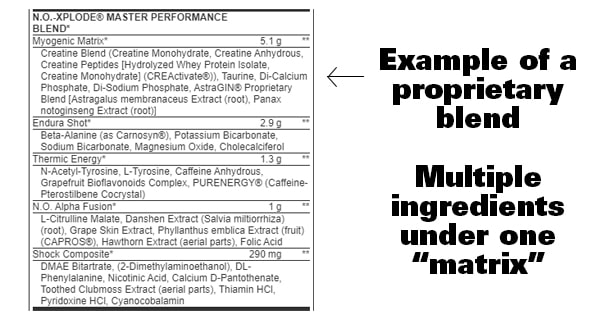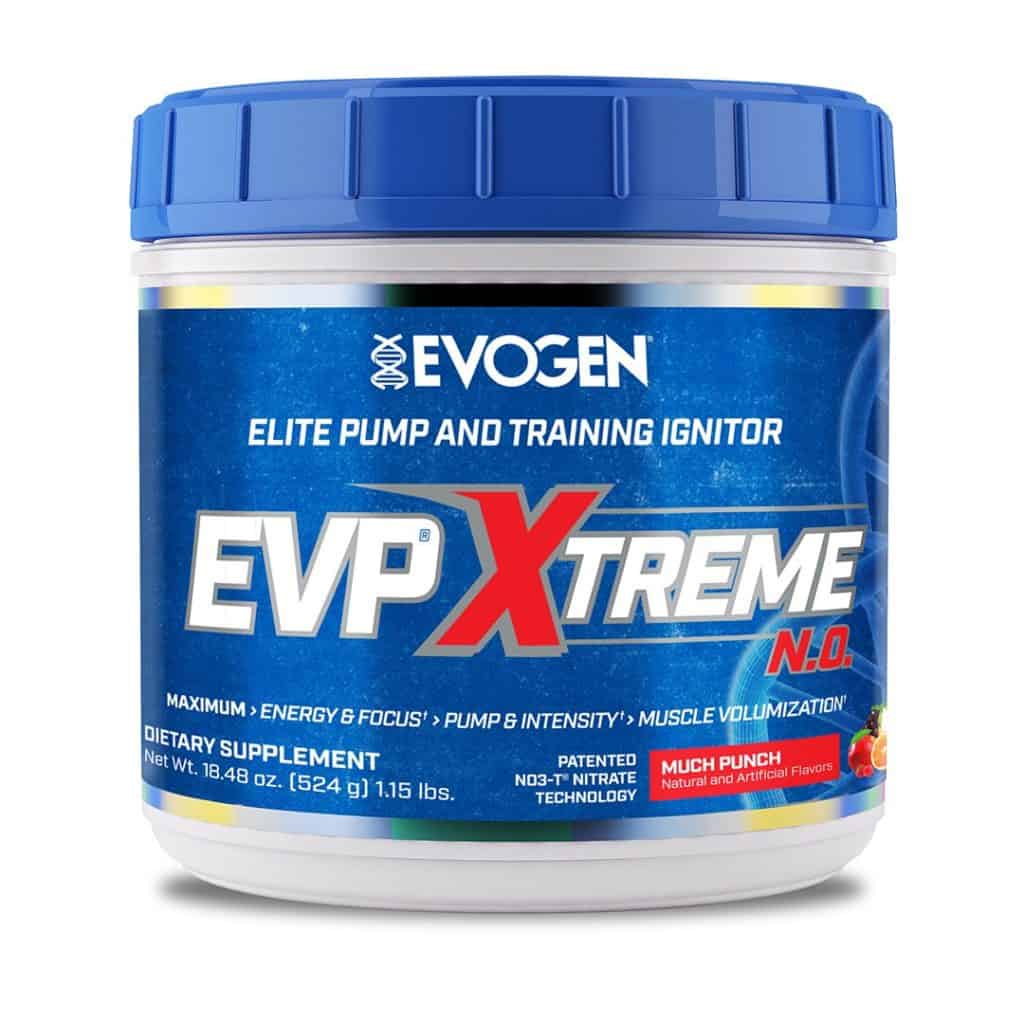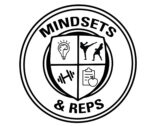
Cardio is an important tool for both fat loss and athletic performance. Running in particular is one of the most popular cardio modalities and is often used to improve overall conditioning.
Proper supplementation can optimize cardio efficiency no matter what your end goal is. By knowing what ingredients to look for, you can find a supplement to boost fat loss, improve endurance, and minimize fatigue.
Some people falsely believe that pre workout supplements only apply to people who lift weights in the gym. However, there are strong arguments for other applications.
Given the research, it’s fair to say that some pre workout supplements are more beneficial for cardio than weightlifting.
Most of the beneficial aspects of pre workout supplements come via an increase in muscular endurance. This may come into play for people lifting to failure or going through long, 60+ minute workouts. But overall it is more appropriate for cardio-based workouts.
Although most pre workout supplements are marketed towards people who train for hypertrophy (building muscle), much of the research is done in people like cyclists, sprinters, and athletes.
Other common pre workout ingredients aid in fat loss through a boost in metabolic rate or by curbing appetite.
It’s important to note that the supplements and ingredients listed are not mutually exclusive to either fat loss or endurance. They actually go hand-in-hand and there is much crossover between the two exercise goals.
For example, take an individual whose goal is fat loss. While a supplement designed to boost endurance and VO2 max won’t directly influence fat loss, it will allow that person to exercise longer and harder. This in turn would boost fat loss in the long run, as the individual is able to achieve a greater calorie burn.
Now take someone using cardio for athletic performance. For example, an athlete who begins running as part of an offseason conditioning program.
A supplement designed to boost fat loss won’t directly improve performance, but the positive effects on body composition (i.e. less weight to carry around) would likely serve a long term benefit.
How Supplements Can Boost Fat Loss
The only ways to lose fat are a sustained calorie deficit via diet, cardio, or a combination of both.
Some say that cardio is not a practical means to lose fat, with the argument being that it’s easier to drop 500 calories from a diet than it is to burn 500 additional calories from exercise. I strongly disagree with this sentiment for many reasons.
One is that you want to keep calorie intake as high as possible on a diet. Creating a deficit with cardio allows you to do that. This makes the overall diet phase more palatable since you’re still eating an adequate volume of food on a daily basis.
The second is that certain types of cardio are beneficial for muscle retention. Cardio modalities like sprints, rowing, and battle ropes are similar mechanistically to lifting since they are so intense. You are able to burn calories while still engaging muscles, which cannot be achieved with dieting alone.
Cardio for the purpose of fat loss comes in the form of LISS (low intensity steady state) or HIIT (high intensity steady state). The key differences between the two and their application to fat loss are explained in depth here.
Whichever method is chosen the end goal remains the same; burn as many calories as possible. Ideally, these calories would come from stored body fat. The right pre workout can ensure you’re getting the most out of each cardio session.
Cardio supplements for fat loss will make the overall process of fat oxidation more efficient. This could be through an increase in body heat (thermogenesis), metabolic rate, lipolysis, or the burning of fat itself.
How Supplements Can Improve Endurance
When performing endurance exercise like running, biking, competitive sports, or HIIT classes, the limiting factor is usually fatigue.
The body has a limited capacity to perform cardiovascular exercise, and when it gets tired you are forced to slow down or stop completely. This often occurs due to a buildup of acid in the muscles from strenuous exercise.
While this is a normal byproduct of cardio, there are supplements that can delay this time to fatigue. Certain supplement ingredients can buffer acid buildup and allow the body to exercise longer.
In addition, there are supplements that can boost the maximum output of cardiovascular exercise. In other words, you reach a greater peak performance through an increase in VO2 max.
VO2 max is the maximum rate of oxygen used during exercise. It is considered the best measurement of a person’s cardiovascular fitness. A higher VO2 max means the body can utilize more oxygen and thus produce a greater amount of energy for exercise.
How to Choose a Pre Workout Supplement for Cardio
The best pre workout supplement for cardio would ideally have a combination of ingredients that boost fat loss and improve endurance.
When shopping for a pre workout, it’s important to not only look for the right ingredients, but also make sure they’re in efficacious doses.
Many supplement companies hide behind proprietary blends, which display a collection of ingredients without specifying exactly how much of each ingredient is in the product.

Shown above is an example of a proprietary blend. In fact, this supplement has multiple proprietary blends within the same formula. Each ingredient is listed on the label, but you have no idea how much you’re getting.
This tactic has waned as supplement consumers have become more educated, but it’s still out there. While I wouldn’t say you should avoid prop blends completely, it’s always better to know exactly what’s in the product.
Key Ingredients to Look For
Caffeine
Caffeine is the most abundant drug in modern society, found in coffee, soda, energy drinks, and of course pre workouts. In fact, caffeine is so ubiquitous in pre workout supplements that there is an entirely separate category called non-stim pre workouts.
Caffeine works in multiple ways to increase fat loss. It increases thermogenesis, which is the body’s ability to generate heat and burn calories, even without physical exercise.
Caffeine also has the ability to increase lipolysis and fat oxidation. Lipolysis occurs when fatty acids are released from stored fat tissue, and fat oxidation is the actual burning of those free fatty acids.
A study on cyclists showed greater rates of fat burning after the ingestion of caffeine. This was a great study design since the participants served as their own control. In other words, they performed one cycling trial without caffeine followed by one with caffeine. The study designers then compared the results individually from both trials.
The other interesting thing was that the increased fat burning did not come at the expense of carbohydrate burning. The same amount of carbohydrates, on average, was burned during both trials. So the overall calorie burn from the ingestion of caffeine was also greater.
From a performance standpoint, caffeine benefits both anaerobic and aerobic exercise. This is noteworthy since it covers the entire spectrum of exercise. Whether you’re performing HIIT or LISS, doing 100 meter sprints or playing a 90 minute soccer match, caffeine will provide a benefit.
Optimal caffeine consumption varies from person to person. Over time the body develops a tolerance for it, where you will then have to increase consumption or take a break.
The average coffee has about 150mg of caffeine per cup. Energy drinks have a wide range, anywhere from 80mg to over 300mg. Supplements also have a wide range, but the average falls at about 200mg.
Similar to creatine with regards to weightlifting, caffeine is often overlooked because it is so readily available and inexpensive. It’s not the hot, new supplement, but the research shows it works in a variety of ways.
L-Carnitine
Fat oxidation is a multi-step process where fats are released from adipose tissue, circulate the blood, enter the muscle cell, and are finally burned in the mitochondria. It’s part of the reason why fats are not a favorable energy source for intense activity; it takes too long to create energy.
The final step in that fat oxidation process is the slowest, or rate limiting step.
Carnitine is the transporter that guides fats into the mitochondria to be burned for energy. Supplementing with carnitine makes this slow final step more efficient.
There are many different forms of carnitine, with the differences explained here. What remains consistent among all of them is the dosing; 1-2 grams daily is adequate for most people.
Carnitine supplementation also showed an increase in anaerobic work capacity during a wingate cycle test. The wingate is a type of stationary exercise bike designed to measure lower body power output.
Similar to the study on caffeine, this was an excellent design where the participants served as their own control, with one week in between tests for maximum recovery. The participants did not know if they were supplementing with carnitine or placebo so there was no power of suggestion.
Yohimbine
Yohimbine is a stimulant with potent fat loss properties. It works by increasing adrenaline (similar to what caffeine does) and inhibiting processes in the body that halt fat burning.
Some people don’t like the way yohimbine makes them feel, as it has been shown to increase anxiety in certain people. If this doesn’t apply to you, it’s a good ingredient to have in your stack.
Citrulline
Citrulline is a staple in many pre-workout formulations. It has replaced arginine as the main ingredient to increase blood flow. But blood flow isn’t just for muscle pumps and posing in the mirror; it has a great effect on cardiovascular endurance.
Citrulline has been shown to increase work capacity, delay fatigue, and improve aerobic exercise performance. A standard dose is 6-8g, but it doesn’t appear to have an acute response unlike the other ingredients listed previously. This means that you have to take citrulline consistently over time to see a benefit.
Green Tea
As a supplement ingredient, green tea won’t do anything extraordinary, but it does many things moderately well. Meaning, green tea shows a minor benefit in many areas but nothing overwhelming in any specific area.
Green tea has shown a minor benefit in the following areas: reducing body fat, increasing fat oxidation, increasing blood flow, and improving VO2 max. While they are slight improvements, green tea basically checks all the boxes of what has been discussed.
Green tea is sometimes noted as EGCG on supplement labels. EGCG is one of the main constituents of green tea and is associated with many of the benefits.
Green tea appears to have a synergistic effect with caffeine in terms of fat burning properties.
Beta Alanine
Pre workout supplementation has reached a point where it’s hard to find a product that doesn’t contain beta alanine. Beta alanine is an amino acid that converts to carnosine in the body. Carnosine is then stored in muscle cells until it is needed.
When exercise intensity is high, muscles create acid as a byproduct. This acid is responsible for the burning and fatigue sensation that occurs as a result of strenuous exercise. Naturally, this slows you down.
However, carnosine is released in times like these and acts as a buffer for this acid buildup. As a result, you’re able to continue training hard.
The ironic thing is that most people who use beta alanine rarely reach this point. Beta alanine is more effective for cardio workouts than for a typical bodybuilding workout.
Beta alanine is the ingredient responsible for the tingling sensation you may feel when using a pre workout. The mechanism for this itching is a bit of a mystery, but the effect itself is completely harmless.
Some people love this sensation while others don’t. This feeling can be avoided by splitting the dose of beta alanine into two separate servings, spaced throughout the day.
A standard dose of beta alanine is about 3g. Beta alanine is one of the rare ingredients that is properly dosed in almost every pre workout supplement. As mentioned, carnosine builds up in muscle cells, so timing is not important. Just remember to take it consistently.
Supplement Recommendations for Cardio Workouts
Here are various supplements that contain one or more of the ingredients listed above for cardio exercise.

Evogen Nutrition EVP Xtreme N.O.
Despite being marketed as a nitric oxide booster (typically associated with people who perform muscle building workouts), this is a great formula for cardio workouts.
- Citrulline
- Beta Alanine
- Caffeine
- Yohimbine
Redcon1 Double Tap
Separate from their Total War product, this is a powdered thermogenic that’s still marketed as a pre workout.
- Carnitine
- Green Tea
- Caffeine
Evlution Nutrition Trans4rm
Trans4rm is the most cost effective of the bunch, costing less than $1 per serving.
- L-Carnitine
- Caffeine
- Yohimbine
